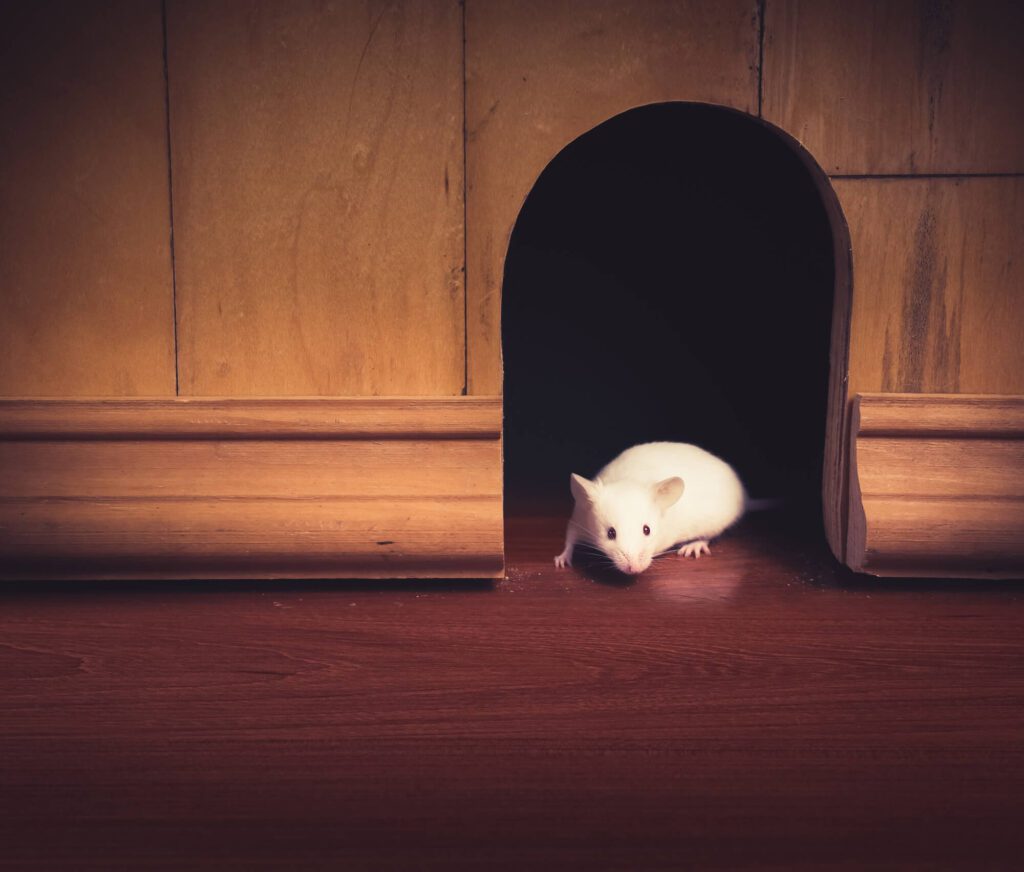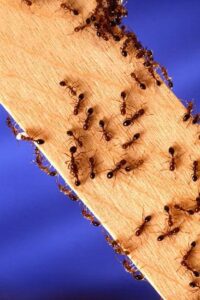“It’ll never happen to me,” you say. “That only happens to people with dirty houses,” you think. Then one day, you see that terrifying gray blur scampering across your floor. You have a rodent problem.
It happens to more people than you think. In fact, every year 21 million American homes have that same upsetting experience.
To fight back, you need to go on the offense and defense at the same time. Most people know to call a pest control expert if they spot a rodent infestation, but how do you prevent one from happening again?
Start with these essential rodent infestation control tips.
Preventative Tips for Rodent Infestation Control
Everyone wants to come out from the cold during the winter. and that includes rodents. Follows these tips to keep them out.
1. Lock Up Your Doors (Beyond a Deadbolt)
Most people think that if there aren’t any holes in their home, rodents can’t get in. Even brand new homes have a few huge holes, though: doors.
On top of keeping your door closed as much as possible, you need to seal up vulnerabilities. For one, fix any tears in your door’s screen as soon as they appear.
Another helpful step is to seal up the bottom of your doors by installing door sweeps. Door sweeps are discrete brush-like strips you can attach to the bottom of each door to block rodents as well as dirt and air flow.
2. Keep It Dry
Rodents need water to live just like we do, so they’re attracted to damp spaces. If that damp space happens to be your basement or crawl space, you’ll have an infestation on your hands.
The moisture isn’t just attractive to rodents. It makes it easier for them to get into your home as well. It often causes rot to develop in wood and other housing materials, which makes the material easy for the rodents to chew through.
Watch for signs of moisture in these types of spaces and fix the problem as soon as you can. In addition to drying any moisture right away, you need to identify and rectify the source of the moisture too.
3. Eliminate the Food Supply
Besides water, available food is another huge way to make your home attractive to rodents (in a bad way).
Keep your food as protected and sealed as possible. Keep it in containers at all times rather than letting it sit out.
That includes the food you dispose of as well. Instead of tossing old food in your kitchen garbage can for a week until trash day, take it to an outdoor trash can.
4. Quarantine Your Firewood
The word “quarantine” might be a bit strong. Still, be sure to store firewood at least twenty feet from your house. It can attract rodents and, if it’s sitting against your house, it can conceal a growing hole in the home’s structure.
Some rodents like to hide in bundles of firewood. Before you bring any wood into your house, inspect it to make sure you aren’t bringing in any stowaways.
5. Manicure Your Shrubs
As beautiful as a landscape-bordered home may look, you don’t want your shrubs right up against your house. As with firewood, they can attract rodents and hide damage to your home. Think of shrubs like the poster an inmate might hang on their wall to conceal a hole they’re digging to escape.
To keep your home rodent-free, make sure all your shrubs are at least a few feet from the home. Prune them on a regular basis too, as the excessive growth is a rodent magnet.
6. Leave No Open Gaps
There are certain “holes” a home needs to have, like chimneys and vents. You don’t have to leave them unguarded, though.
Any time your home has an opening big enough for a baby mouse to fit into, install a screen. Screens are easy to cut to the exact size you need and they’ll cost you far less than treating an infestation.
7. Use the Right Seals
As a rule, every opening to the outside of your home should be sealed. For instance, you should have caulking around all your windows. Even small seams can let in moisture that damages the home and welcomes rodents.
It’s important to seal them the right way, though. For instance, use caulking that’s made specifically for exteriors when you’re caulking around your windows.
Some people use bathroom caulk instead, for example, because it’s on sale or because they have some lying around. Each caulk is built for a specific circumstance, so stick to the purpose on the label.
8. Know What to Look For
No matter how well you’ve prepared your home, a rodent infestation is never impossible. Part of your preventative measures should include knowing how to detect a problem.
The most obvious sign of rodents is, of course, seeing a rodent in your home. This includes rodents that are alive or otherwise, as well as hearing the terrifying sound of those scampering feet. Even if you don’t see any critters, though, there may be other clues.
Another surefire sign is spotting droppings. They look like tiny brown pellets, and you could find them anywhere throughout the house.
In some cases, the first symptom of an infestation is evidence that they’ve been chowing down. Any time you spot an unexplained hole in a food package, it should be cause for concern. The same goes for gnaw marks on food or packages.
If you have pets, they can be furry little clues as well. Have you seen them acting strangely like trying to get into a specific cabinet or following a scent you can’t explain? They might be tracking a rodent.
9. Kick Procrastination to the Curb
Finally, a key way to stop or prevent an infestation is to call a pest control professional as soon as you see signs of a problem. The little critters breed at a fast rate. As you might expect, clearing three or four rodents from your home is far easier and cheaper than getting rid of dozens of them.
Evicting Your Rodents for Good
As warm and welcoming as you might want your home to be, there are limits. An uninvited family of rodents isn’t many people’s idea of a fun hosting experience. The rodent infestation control tips above can help you stop an infestation in its tracks and prevent a new one from arising.
If you think you may have a rodent or an infestation in your home, contact our pest control experts for prompt and effective help.







